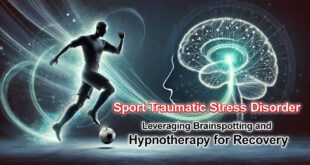Overcoming addiction is one of the hardest things a person may ever have to do. When a dependence to drugs or alcohol takes hold, it can be likened a tree extending its roots deeper and deeper into the ground. And just like a mighty oak or towering evergreen, you can remove it, but it’s near impossible to get out every last tendril. That’s how addiction works: Even off drugs, all things may appear normal, but there are little remnants left behind.
Drugs — be they alcohol, methamphetamines, cocaine, benzodiazepines, opioids, or most anything illicitly used — make changes deep down in the gray matter. The result, according to the National Institute on Drug Abuse, is the way a person feels pleasure, handles stress, or processes thoughts — those get altered or damaged. That’s due to the way drugs and alcohol interfere with how the brain’s neurons function, usually by hijacking neurotransmitter activity or releasing massive amounts of feel-good chemicals. It’s comparable to going out on a bright, sunny day and coming inside to a room that’s dimmed considerably in comparison.
Because of that lingering change, substance use disorders are considered a chronic disease. They remain a constant, but can be treated, and hypnosis can help, but getting clean comes first.
Detox Time
When a person decides to quit substance abuse the first steps include detoxification. Depending on the drug (alcohol is a drug, too) and the level of dependence, those details will dictate the best way to proceed. For someone with a history of heavy drinking, for example, quitting cold turkey can be dangerous, even life threatening, especially if delirium tremens which includes tremors, hallucinations and seizures — sets in. Those situations require medical oversight to monitor vital signs, administer fluids, and treat the most urgent symptoms.
Usually the most common withdrawal symptoms include nausea, vomiting, diarrhea, sweats, anxiety and insomnia.
Those are uncomfortable, yes, but medications like buprenorphine or methadone may be administered to help through opioid withdrawal. For dependence to benzodiazepines such as Xanax or Valium, tapering tends to be the safest approach.
If a patient has co-occurring disorders — two or more conditions, such as depression and substance abuse disorder — they should be treated at the same time. Medications, behavioral therapy, support groups,12-step alternatives, and residential facilities (or a combination thereof) can all lend a big assist toward achieving and holding onto sobriety.
Preventing Relapse
Relapse, or when a person returns to drug use, is one of the challenges just about everyone faces in recovery. Sometimes it’s triggered by some outside source of stress — maybe job demands or a family crisis — or they run into the crowd they used to party with and get sucked back in. Before they know it, “just one” bleeds into a bender.
At other times the aforementioned discomforts of withdrawal — nausea, insomnia, anxiety, etc. — lead them to use again.
That’s where hypnosis may prove especially helpful. The power of suggestion can help alleviate the physical and emotional turmoil that follows and accompanies abstinence. It also provides coping mechanisms against some of the psychological challenges of maintaining sobriety.
How Hypnosis May Help
However one sees hypnosis, whether it’s likened to entering a trance-like state or achieving hyper-focus, it’s been found to be a great way to settle the mind and cast aside mental clutter.
For the people who experience any of the following issues in recovery, hypnosis may prove helpful:
-
Sleep troubles: Hypnosis can promote relaxation and bring on a trance-like calm, leading to better rest and a better, more rested frame of mind
-
Anxiety: Here, a phrase or some nonverbal can be designated to switch focus from the source of stress and segue toward a calmer state via slow, calming breaths, which lower blood pressure and bring on feelings of well-being.
-
Pain: Hypnosis may help with headaches and migraines, as well as other aches and discomforts that accompany the early stages of withdrawal. (Or it can help with the pains that the substance abuse was masking.) Meditation, breathing techniques and relaxation practices can all be used to alleviate whatever may be hurting.
-
Quitting drugs or alcohol: Working with a hypnotherapist the patient can develop healthier alternatives to substance use, like going for a run instead of getting a drink. Hypnosis can also be used to train the brain to link the habit with something undesirable, like taking a certain drug will lead to violent nausea, and make it unappealing as a result.
Hypnotism tends to work better the more a person wants to stop the habit. It generates better focus and makes a person more responsive to adopting new, healthier habits.
A big part of hypnosis’s power is that it amplifies the imagination. Some have likened it to daydreaming, where the focus is on wherever the mind has chosen to go, and all else is muted or tuned out.
Go Pro
For more complex matters like substance use disorders a trained hypnotherapist with a background in clinical psychology or medicine — especially treating addiction — and versed in behavioral therapies may be the best approach to incorporating hypnosis into the recovery process.
Because hypnosis may help reduce anxiety and improve focus it could serve as a fine complement to behavioral therapies, which are designed toward developing positive alternatives to undesirable behaviors. Some liken it to the placebo response. If a person believes the drug or therapy will work, it typically does. The same may be with hypnosis and recovery: If a person believes being hypnotized will help them manage cravings and avoid returning to use, all the better.
 Hypnozine | Hypnosis Magazine Articles by Hypnotherapists Worldwide
Hypnozine | Hypnosis Magazine Articles by Hypnotherapists Worldwide




